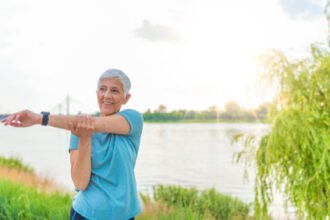Does your aging loved one have a case of the “winter blues” that he or she just can’t seem to shake?
Does your aging loved one have a case of the “winter blues” that he or she just can’t seem to shake?
This change in mood could be attributable to seasonal affective disorder (also called SAD), a form of depression that occurs during a specific time of the year, typically the winter. A common cycle for SAD involves symptoms that appear in the fall and continue into the winter, earning it the nickname “winter depression”.
What is the cause of seasonal affective disorder?
While the exact cause for SAD is unknown, mental health professionals believe a lack of sunlight, changes in body temperature, and hormone fluctuations result in this cyclical form of depression that resolves when the season change again. Researchers speculate that shorter days disturb the body’s circadian rhythm. An imbalance of the brain chemical serotonin and melatonin may also be responsible for symptoms of depressed mood and sleep changes.
Symptoms of seasonal affective disorder
According to the NIH, older adults affect by SAD may exhibit social withdrawal, lethargy, daytime sleepiness, decreased interest in activities, increased appetite, weight gain, and cravings particularly for carbohydrates.
Why are the elderly at risk for seasonal affective disorder?
Although seasonal affective disorder impacts adults of all ages (especially women), age and lifestyle can contribute to the course of the condition. A pre-existing or family history of depression, the recent death of a loved one, and isolation may increase the risk of SAD in the elderly. Older adults who have restricted mobility, who are homebound, or reside in a residential facility may receive less exposure to natural sunlight and time outdoors. Underlying chronic conditions and medication can also be aggravated during the cold, dark winter months.
Treatments for Seniors with SAD
If you are considering antidepressant treatment for SAD, consult a medical professional to learn more about your options.
Non-pharmacological treatments for SAD are simple to implement and can make a huge difference in the happiness and wellbeing of your loved one:
- Ambient tweaks – Welcome more light into the space where your loved one spends most of their time. Move the person’s bed closer to the window and open blinds and curtains to add more natural sunlight to the room. To bring more life into the space, add plants and accent pieces with bright colors.
- Light therapy – Purchase a “light box” that emits UV rays similar to natural sunlight. Research shows that using a light box for 30 to 45 minutes a day can help correct chemical imbalances and regulate neurotransmitters.
- Exercise and diet – Physical exercise is an effective means of helping your aging loved one manage his or her SAD. Consider trying low-impact water aerobics or mall walking. Since some research shows SAD may result from vitamin deficiencies, consuming a well-rounded diet packed nutrients may lessen symptoms.
- Get outside – Accompany your loved one for walks or chat outdoors. If there is a caregiver in the home, request that your loved one spend time outdoors a few times a week.









